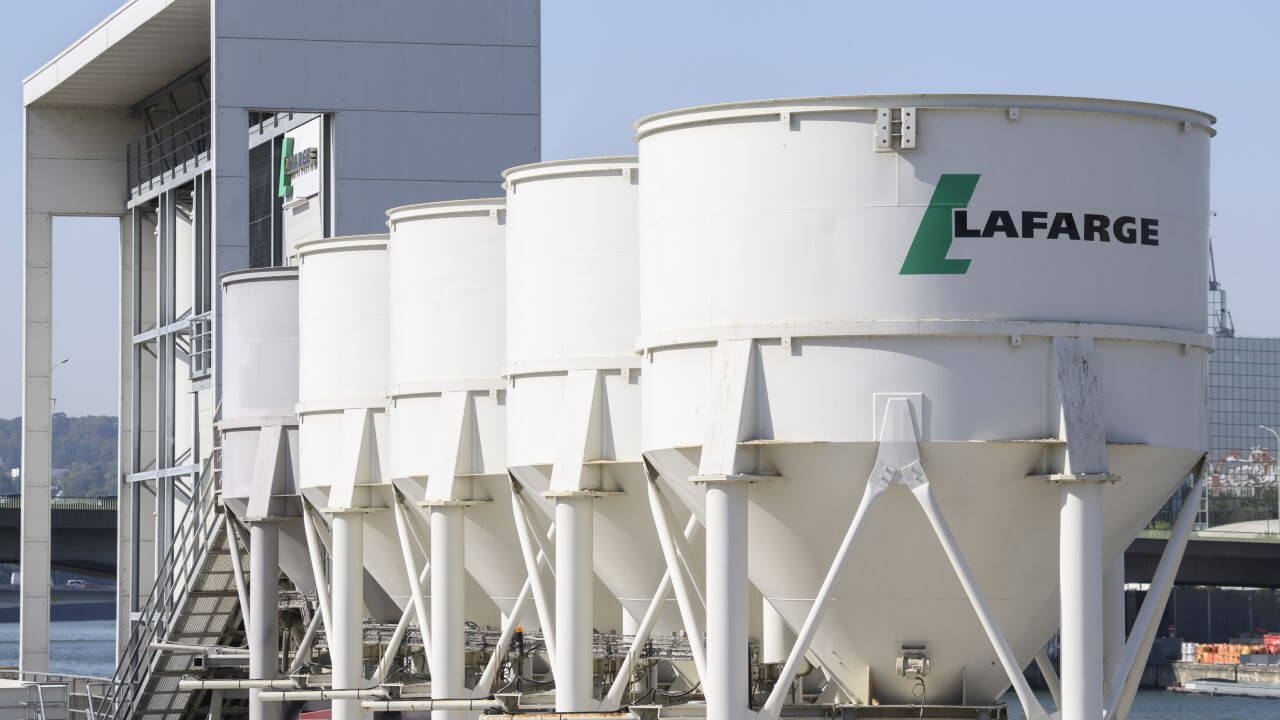On Tuesday, French cement company Lafarge agreed to pay nearly $778 million in fines and serve a three-year probationary period after pleading guilty to a charge levelled by the United States (US) that it had paid over $10 million to terrorist organisations—the Islamic State of Iraq and al-Sham (ISIS) and the Al-Nusrah Front (ANF)—in Syria to keep a cement plant operational. Of this, roughly $5.92 million was given to protect its plant and staff amid an intensifying civil war in the country.
According to court documents, Lafarge made the alleged payments to ISIS and the ANF between August 2013 and November 2014, and enabled it to earn about $70.3 million in revenue.
US Attorney Breon Peace noted that it was the first time a corporation had been “charged with providing material support and resources to foreign terrorist organisations.” Saying that Lafarge “made a deal with the devil,” Peace stressed, “In the midst of a civil war, Lafarge made the unthinkable choice to put money into the hands of ISIS, one of the world’s most barbaric terrorist organisations, so that it could continue selling cement.”
According to his office, Lafarge Cement Syria (LCS) executives bought raw materials for their Jalabiyeh Cement Plant from ISIS-controlled suppliers, paying monthly “donations” to ISIS and ANF so that its employees and suppliers could cross check-points around the plant and also block Turkish competitors, given that its $680m plant was in Jabaliya, close to the Turkish border. LCS also “eventually agreed to make payments to ISIS based on the volume of cement that LCS sold to its customers, which Lafarge and LCS executives likened to paying ‘taxes,’” it stressed.
(3/3) "This unprecedented charge and resolution reflect the extraordinary crimes committed and demonstrates that corporations that take actions in contravention of our national security interests in violation of the law will be held to account," said U.S. Attorney Peace.
— US Attorney EDNY (@EDNYnews) October 18, 2022
In fact, in an email disclosed during the hearing at the US District Court in Brooklyn, a November 2013 agreement between ISIS and LSC, written on ISIS letterhead, said the terrorist group would allow the cement trucks to pass “after they (LFG) have fulfilled their dues to us,” amounting to about $150 for each cement truck. In addition, a July 2014 email from one executive to two others said, “We have to maintain the principle that we are ready to share the ‘cake,’ if there is a ‘cake,’” in reference to the revenue-sharing scheme.
Moreover, painstaking efforts were made to conceal these deals, with Lafarge employees pushing ISIS not to mention the company's name on any documents and also using personal e-mail IDs instead of corporate e-mail IDs.
Deputy Attorney General Lisa Monaco said the charges “are a vivid reminder of how corporate crime can intersect with national security.” “The defendants partnered with ISIS, one of the most brutal terrorist organisations the world has ever known, to enhance profits and increase market share — all while ISIS engaged in a notorious campaign of violence during the Syrian civil war,” she asserted.
In a similar vein, Assistant Attorney General Matthew Olsen of the Justice Department’s National Security Division stated, “There is simply no justification for a multi-national corporation authorising payments to designated terrorist organisations,” especially “at a time those groups were brutalising innocent civilians in Syria and actively plotting to harm Americans.”
The US Department of Justice (DOJ) filed the case in New York because one of the payments to the terror groups was routed through the state.
Lafarge Pleads Guilty to Conspiring to Provide Material Support to Foreign Terrorist Organizations @NewYorkFBI https://t.co/JuBdtP4xou pic.twitter.com/dAAVJYgajk
— FBI (@FBI) October 18, 2022
During the Tuesday hearing, Lafarge Chairman Magali Anderson admitted that former executives of the company “knowingly and willfully agreed to participate in a conspiracy to make and authorise payments intended for the benefit of various armed groups in Syria,” adding, “The individuals responsible for this conduct have been separated from the company since at least 2017.”
In a separate statement, Lafarge accepted responsibility for their actions and said they “deeply regret” their conduct.
Lafarge was acquired by Switzerland-based company Holcim in 2015. Following the ruling, Holcim said it supports Lafarge’s plea deal, noting that Lafarge’s actions are “in stark contrast with everything that Holcim stands for,” noting that it has never operated in Syria.
“The DOJ noted that former Lafarge SA and [Lafarge Cement Syria] executives involved in the conduct concealed it from Holcim before and after Holcim acquired Lafarge SA, as well as from external auditors,” Holcim remarked, adding, “When Holcim learned of the allegations from media reports in 2016, Holcim proactively and voluntarily conducted an extensive investigation” and made the findings public.
Deputy AG Lisa Monaco announces a French cement company, Lafarge SA, has pleaded guilty for conspiring with ISIS in order to make millions of dollars in profits.
— The Recount (@therecount) October 18, 2022
Monaco cites executives at the company emailing one another about how they could "share the cake" with ISIS. pic.twitter.com/6ReNvJVLwY
However, Deputy AG Monaco pointed out that Holcim “did not perform due diligence of Lafarge’s operations in Syria, despite the clear compliance risks posed by operations in the region. And it did nothing to investigate or address Lafarge’s illegal activities until they were publicly exposed,” underscoring that the US expects higher standards from companies operating in high-risk environments.
That being said, Lafarge evacuated the plant in 2014, before it was acquired by Holcim.
Although the DOJ did not prosecute any individuals, it said that French authorities had already indicted some executives.
Nevertheless, Paris-based human rights group Sherpa, whose complaint against Lafarge in France resulted in a criminal investigation of whether it was complicit in crimes against humanity, condemned the plea deal, saying that it “impede(s) access to justice for victims and deprives them of a public trial.” Lafarge has denied all charges of committing crimes against humanity.

